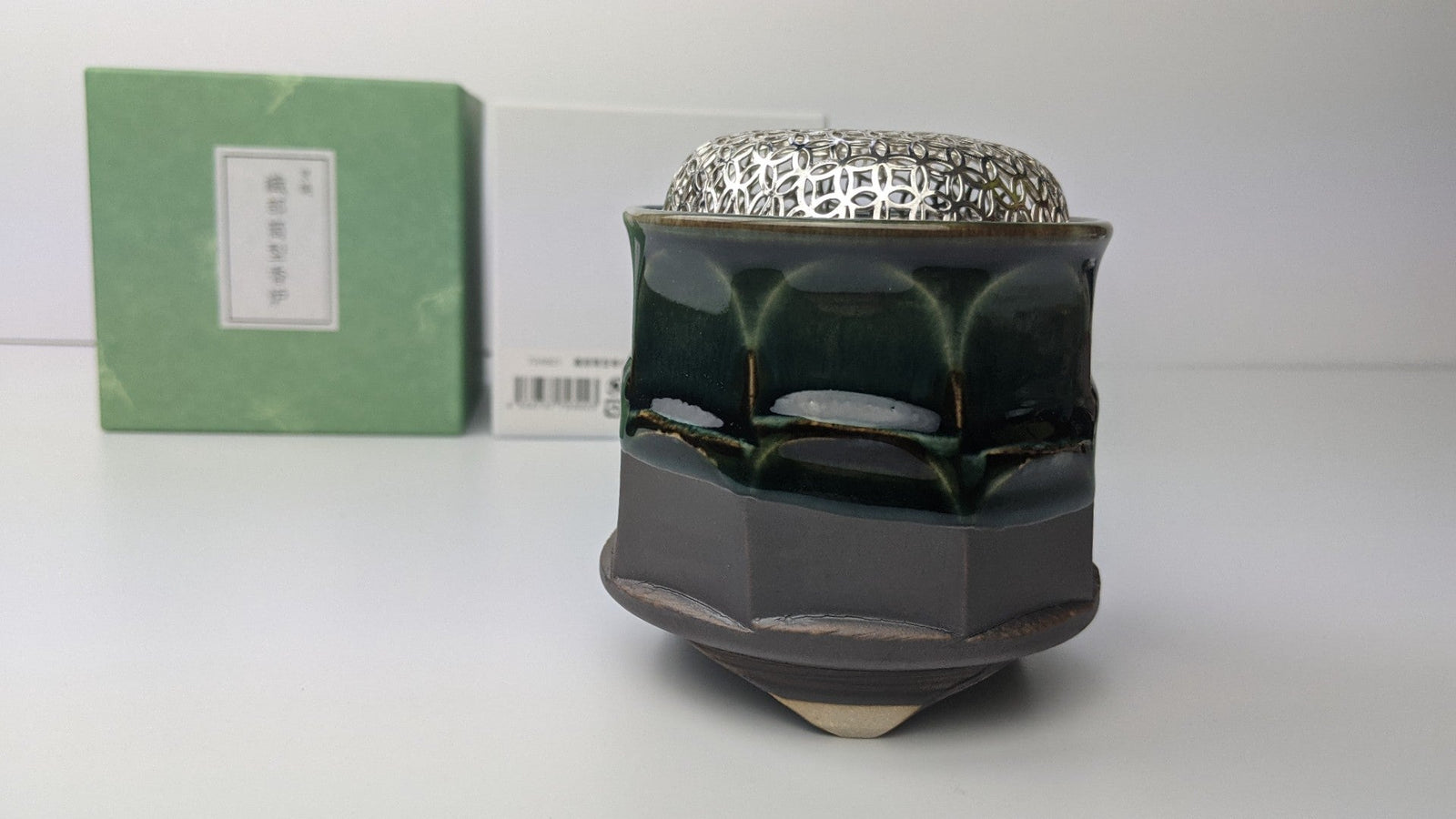
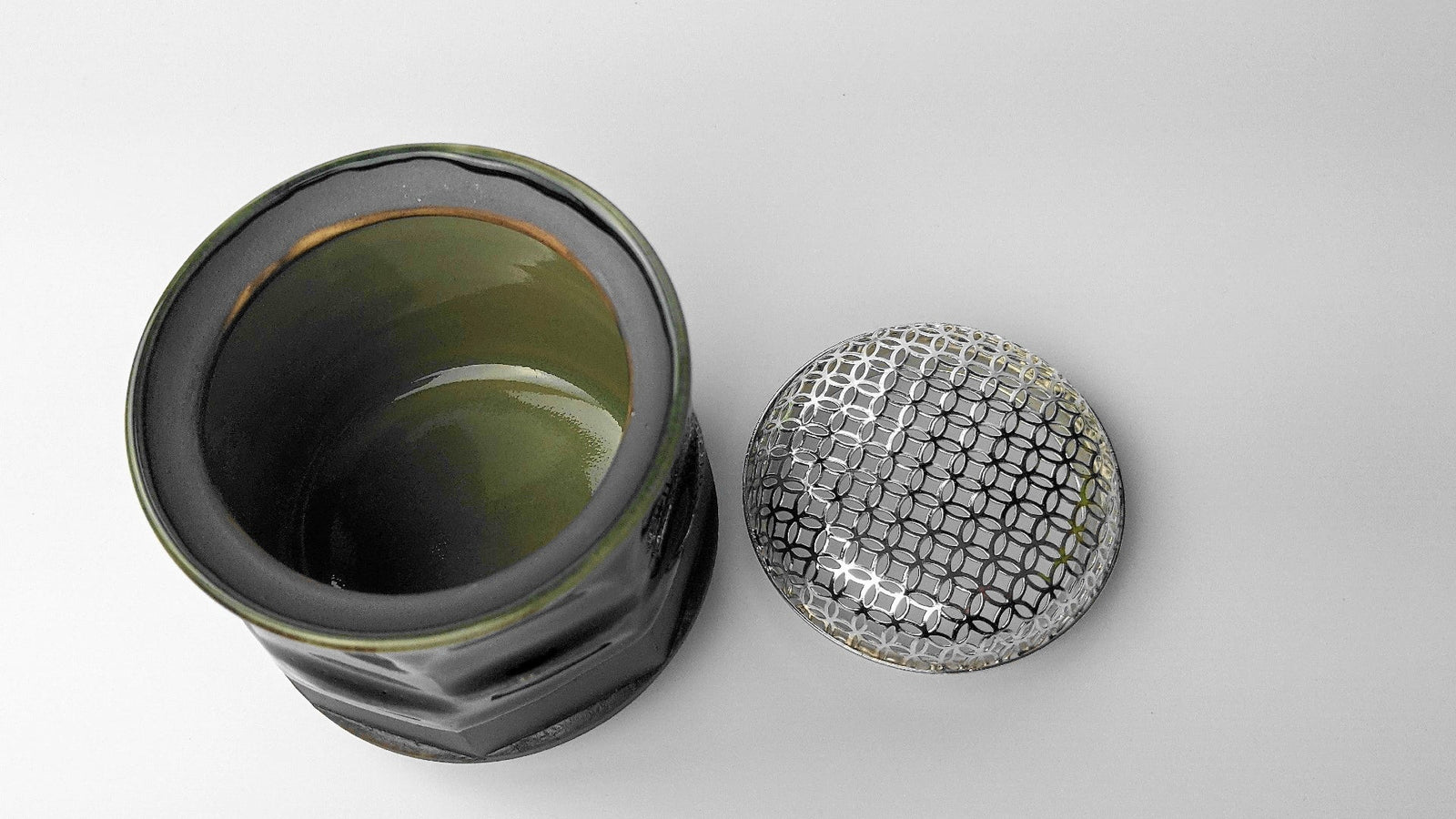
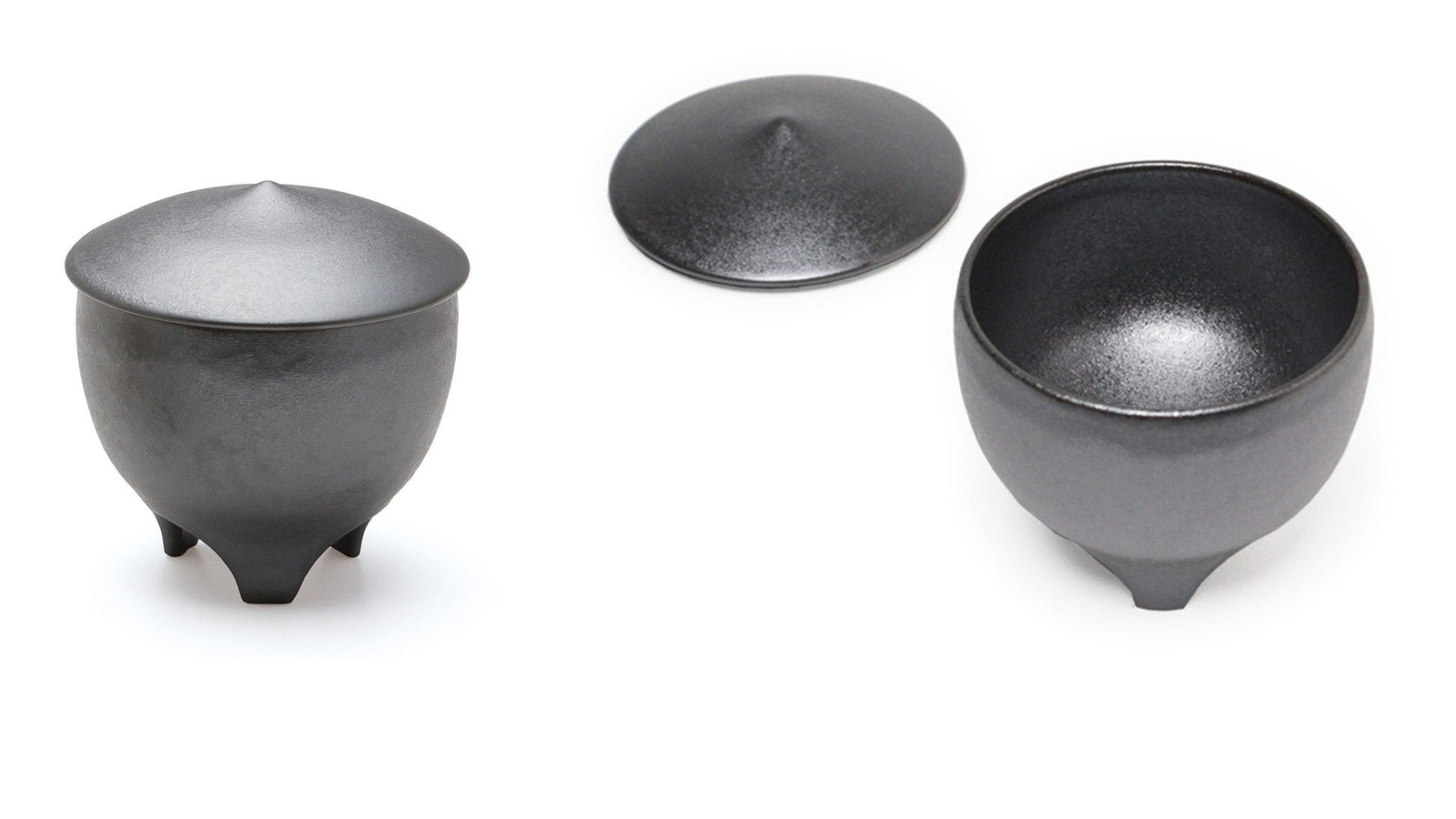
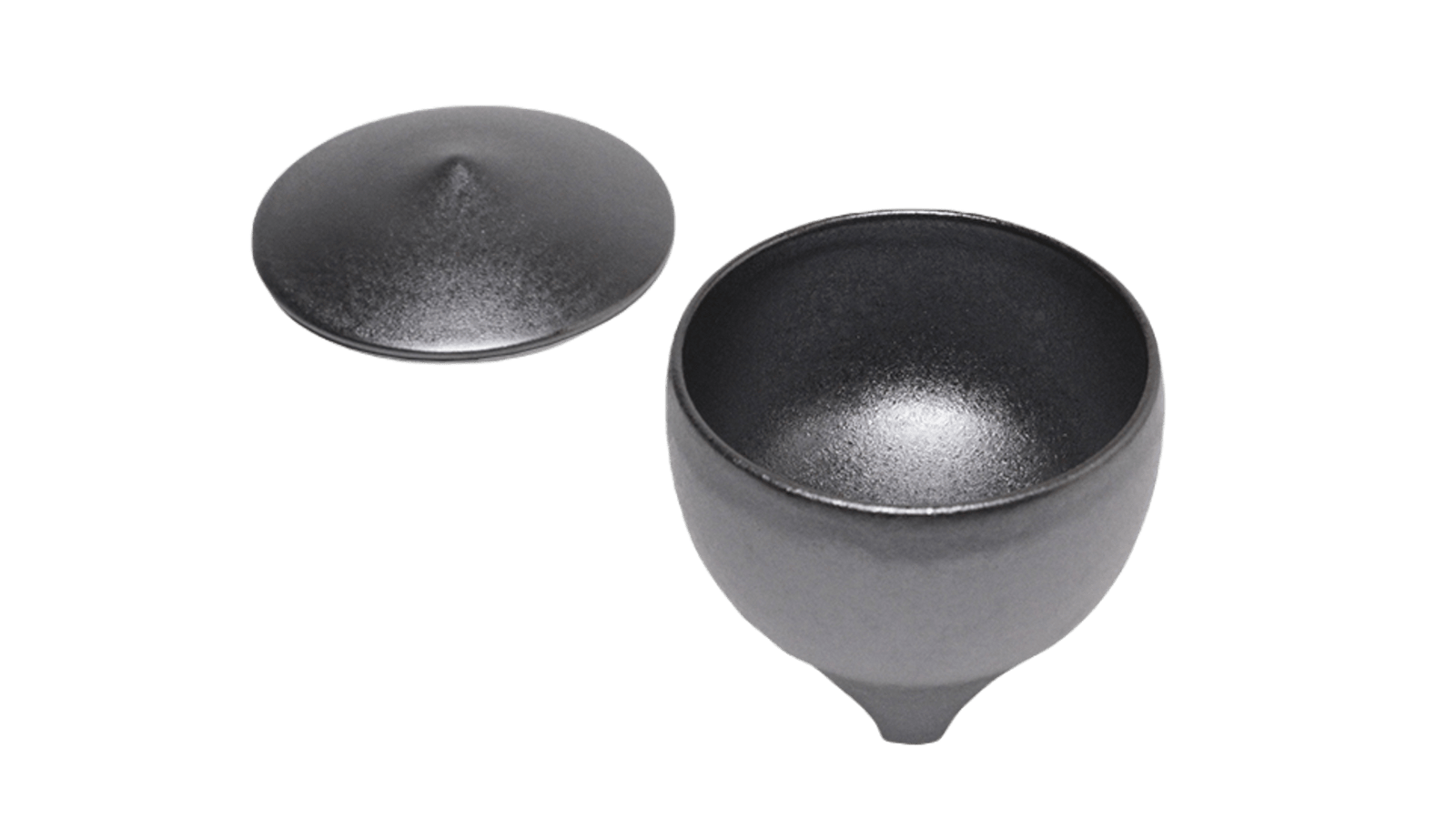
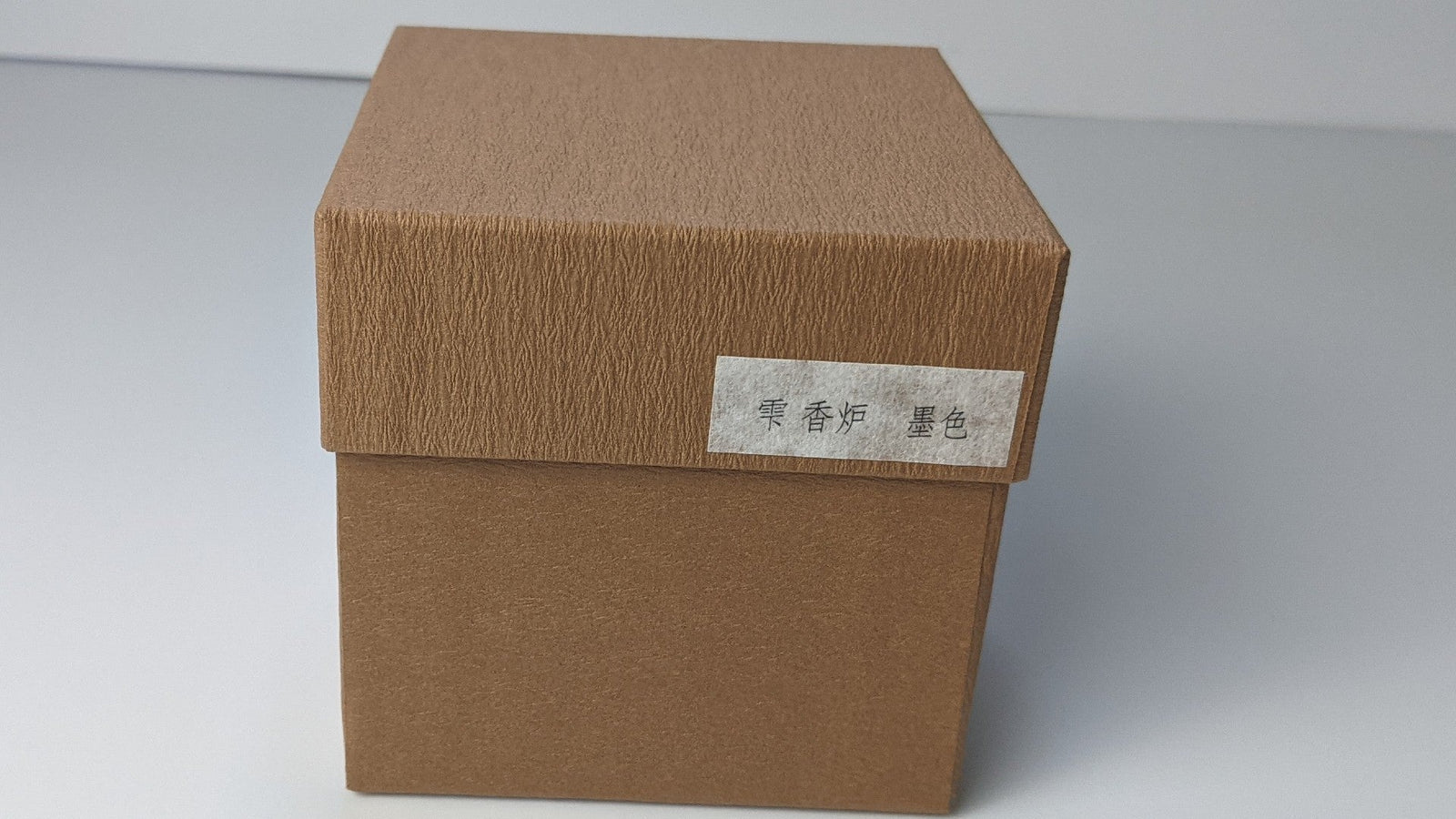
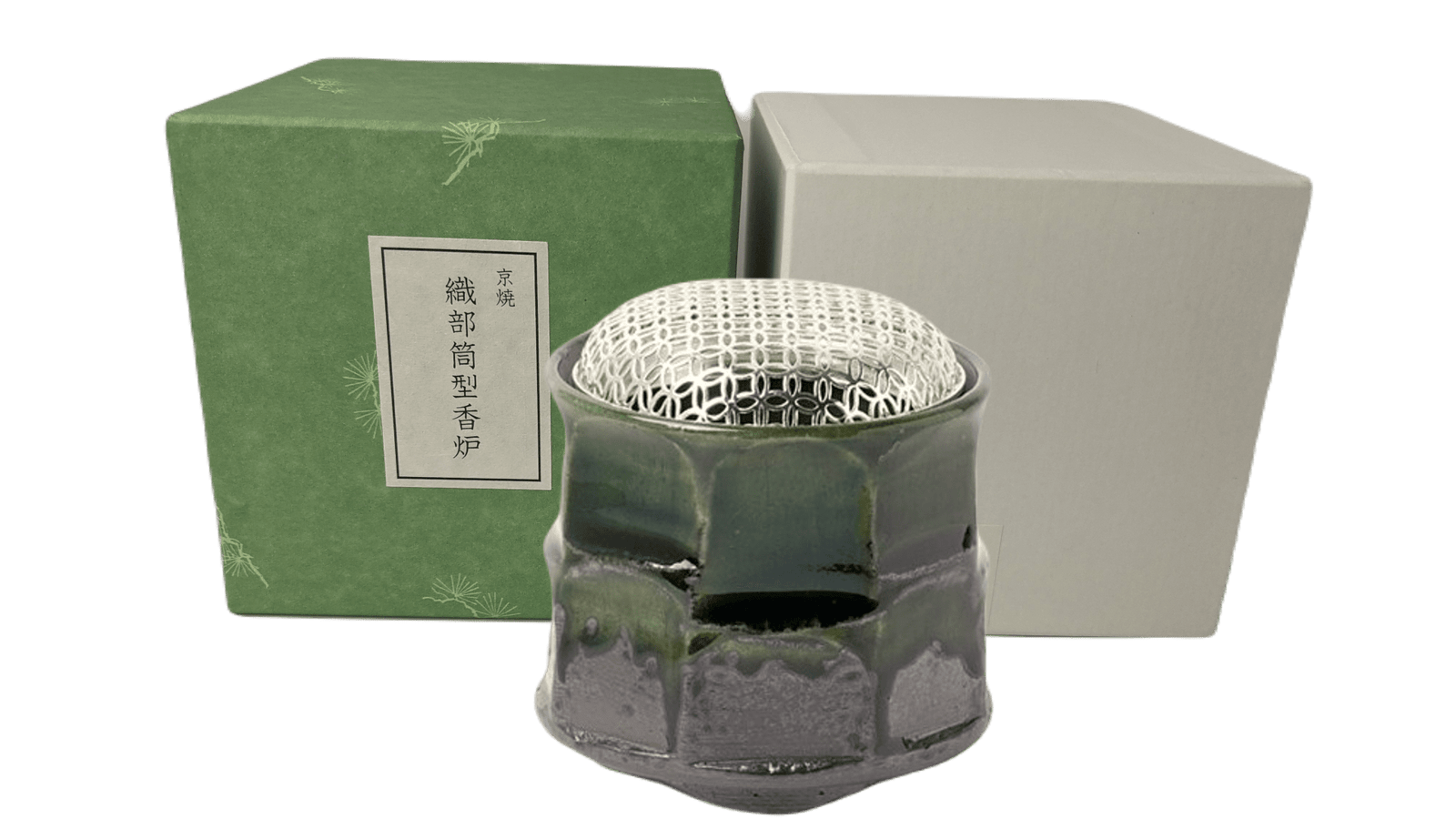
Shoyeido Porcelain Incense Burner Sumi and Oribe Green
Introducing the Shoyeido Porcelain Incense Burner Sumi.
This beautiful burner is crafted from porcelain Kiyomizu pottery, making it both heat resistant and stylish. What a perfect way to enjoy your favourite fragrant wood, pressed incense, and wood resin.
The simple design is perfect for any décor, and the burner can be used with white ash to burn wood, resin incense, or simply to hold incense sticks and cones. The burner is also great for aromatherapy, creating a relaxing and inviting atmosphere in any room.
Close the lid when you finish burning. This action will stop supplying oxygen inside the censer.
*Height 8.2cm x Diamater 7cm
Introducing the Shoyeido Porcelain Incense Burner Oribe Green
This beautiful and fragrant incense burner is made in Japan from the finest porcelain at the renowned Kiyomizu Rokubei pottery. It is 9.5 cm tall and 8 cm in diameter, making it the perfect size to use with pressed incense or fragrant wood (yes, you can use this burner to heat frankincense without the burn notes) This porcelain incense burner comes with an alloy safety net to stop you accidentally touching the fire
Porcelain by Kiyomizu Pottery(Kiyomizu Rokubei)
Kiyomizu Rokubei was a Japanese Edo period porcelain artist who worked in Kyoto. His work is characterized by a sophisticated style and use of colour, as well as a mastery of techniques such as enamelling and painting on porcelain. He has also known for his signature blue and white wares.
Kiyomizu Rokubei was born in Kyoto in 1637 to a family of potters. He began his career as a painter, working under the name Sanraku. He later changed his name to Rokubei, after his teacher, Kiyomizu Sanraku.
Rokubei's work is known for its delicate beauty and craftsmanship. He often used enamel colours on his porcelain, which was a difficult technique to master. He also painted on porcelain, another difficult process.
Rokubei's work was very popular in his day, and he received many commissions from the nobility and the imperial court. He also exported his work to China and Europe, where it was much sought after.
Rokubei died in Kyoto in 1708. His son, Kiyomizu Ritsuo, took over his workshop and continued his father's tradition of creating beautiful and technically skilled porcelain.
Oribe Green W 8 x H 9.5 cm







